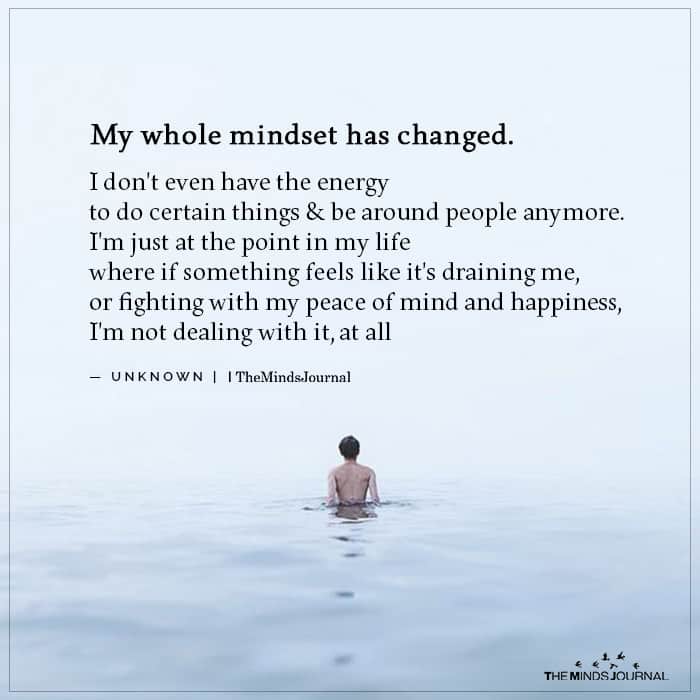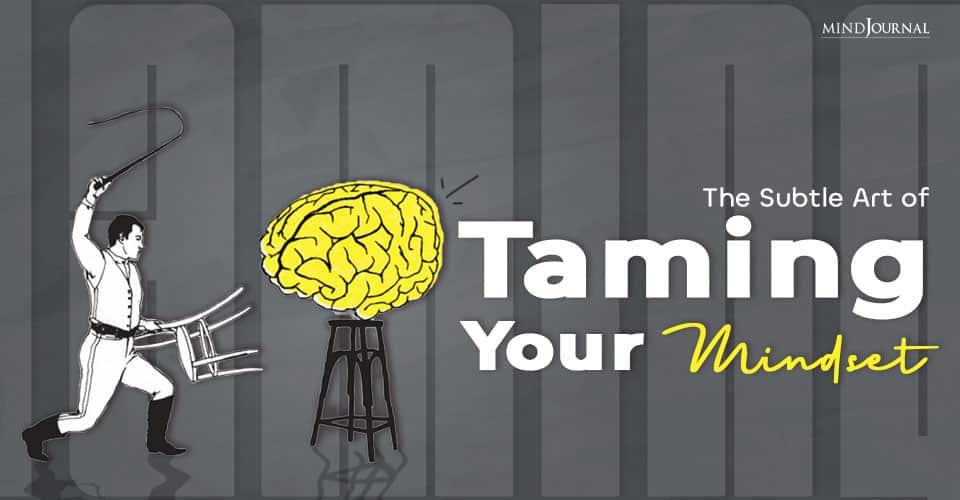Mindset is a tricky phenomenon. It is often like being on autopilot but without awareness of the program. For example, a CEO client of mine likes to state that feedback is very important. Yet when it comes to critical moments, he absolutely shuts down and doesn’t listen to anyone.
When he thinks business is as usual, though, he asks for a lot of feedback, often from people with questionable expertise, and allows himself to be influenced. His goal is to scale his business, but his mindset seems to be a real obstacle with a constant change of direction.
Another client, a senior leader, is looking for more satisfaction from her work. She has been with the same company for over a decade. Her mindset has created an impassable obstacle. She believes that she can either choose to do the thing she loves and give up her financial security or do the work she hates and be secure. She says it feels like being on a leash… and not being able to break free.
But what is mindset? According to a scientific definition, “a consistent pattern of thoughts about a specific topic can become a mindset, which represents an established set of beliefs that shape how people think.”* According to Carol Dweck in Mindset: Changing the Way You Think to Fulfill Your Potential, “a simple belief about yourself … guides a large part of your life … Much of what may be preventing you from fulfilling your potential grows out of it.”**
Related: 5 Ways To Shift Your Mindset Towards More Optimism
According to our research with Robert Dilts, mindset—which is made up of our inner state, beliefs, attitude, and thinking processes—is the primary engine behind the actions we take.
Hence, my client’s mindset puts her into a deadlock where she can’t see the otherwise available choices and options. The actions or the lack thereof that stem from our beliefs create outcomes in the world around us. For her, it is to continue in a career path she hates. Achieving her desired outcomes thus requires a different mindset that would produce different and more aligned actions.
In our research, we have found that there are three distinctly different levels of what we refer to as mindset. This has ultimately led us to create the so-called Success MindsetMaps Inventory.
The meta mindset level is our big-picture clarity about life, and it encompasses our fundamental attitude toward our world, the work we do, and the way we see our roles and goals.
The macro mindset level relates to the mental disciplines and practices required to bring focus to the big picture and an ecological way of putting our personal and business vision into action.
The micro mindset level produces the specific actions necessary to build a sustainable path for our venture, project, or team.

One of our key findings: specific elements of the meta, macro, and micro mindset layers are necessary to achieve the core outcomes for personal and business success. These core outcomes that conscious leaders and entrepreneurs seek can be categorized into the following five key focuses: personal satisfaction, meaningful contribution, innovation and resilience, scalable growth, and financial robustness.
For example, if our goal is to find more personal satisfaction in our work, it will require a strong connection to our passion (meta); we will need to establish good ways of recharging and balancing, and keeping our energy and focus (macro) and implement daily practices to connect to our purpose and motivation (micro).
We have been able to identify the specific mindset patterns for the five key focuses, which led to the development of our inventory that helps people to assess their current mindset and learn how to adjust it to better support their goals.
Related: 4 Ways You Can Give Up The Worst-Case Scenario Mindset for Good
Here is a four-step process for anyone who would like to take control of their mindset so that it can give them the necessary “wings” to achieve their dream outcomes:
1. Forget the common misconception that mindset is a deep pattern that is very hard to change.
Rather, think of it as a contextual and fluid pattern of beliefs and attitudes that you can set and reset with regard to different focuses and goals.
2. Identify your current focus from the five core focuses above.
They will each require a different mindset. For my client, it was getting more satisfaction from her work.
3. Explore your meta mindset—and ask the question, “What journey am I on?”
Where are you coming from, and where are you going? This includes exploring your vision, ambition, mission, and purpose and the role you need to play to achieve your goal.
Hint: First, you need to find your purpose and passion. My client realized that her purpose was to help science professionals with a writing block to write a book.
Related: Buddhism Reveals The Ultimate Mindset To Achieve Your Goals
4. Explore your micro mindset.
What actions do you need to take on a daily basis that will help you to achieve your goal? These practices center around four areas of focus:
- Your customers and the relevant products or solutions you offer.
- Your dream team.
- The right processes and stakeholders.
- Your alliances and partnerships with complementary others.
Hint: Finding your zone of excellence and teaming up with complementary others may lead you to your zone of genius. For my client, it was starting a writing class project for scientists that she facilitated with someone else while also keeping her day job. This eventually led to forming a new and successful venture and leaving the job she disliked behind.
If you want to explore how to use the unique Success MindsetMaps coaching tool for yourself or your clients please check out the upcoming MindsetMaps Coach training on this link.
References:
*Understanding the prevalence and correlates of implicit theories of weight in the United States (Auster-Gussman & Rothman, 2018) **Dweck, Carol. Mindset: Changing The Way You think To Fulfil Your Potential (Kindle Locations 86-89). *** Next Generation Entrepreneurs by Robert Dilts 2017
Written By Mickey A. Feher Originally Appeared On Psychology Today










Leave a Reply